The ruckus of barking penguin calls played through the speakers of a solar-powered love-machine, perched on coastal cliffs on the NSW Far South Coast, has resulted in the hatching of a wild baby penguin.
It's the first of its kind since the original colony became extinct in the early 1990s due to development, east coast lows which flooded sea gutters and burrows, domestic dogs, and the invasive fox.
Prior to this chick, Manly in Sydney Harbour had the only known mainland breeding colony in NSW.
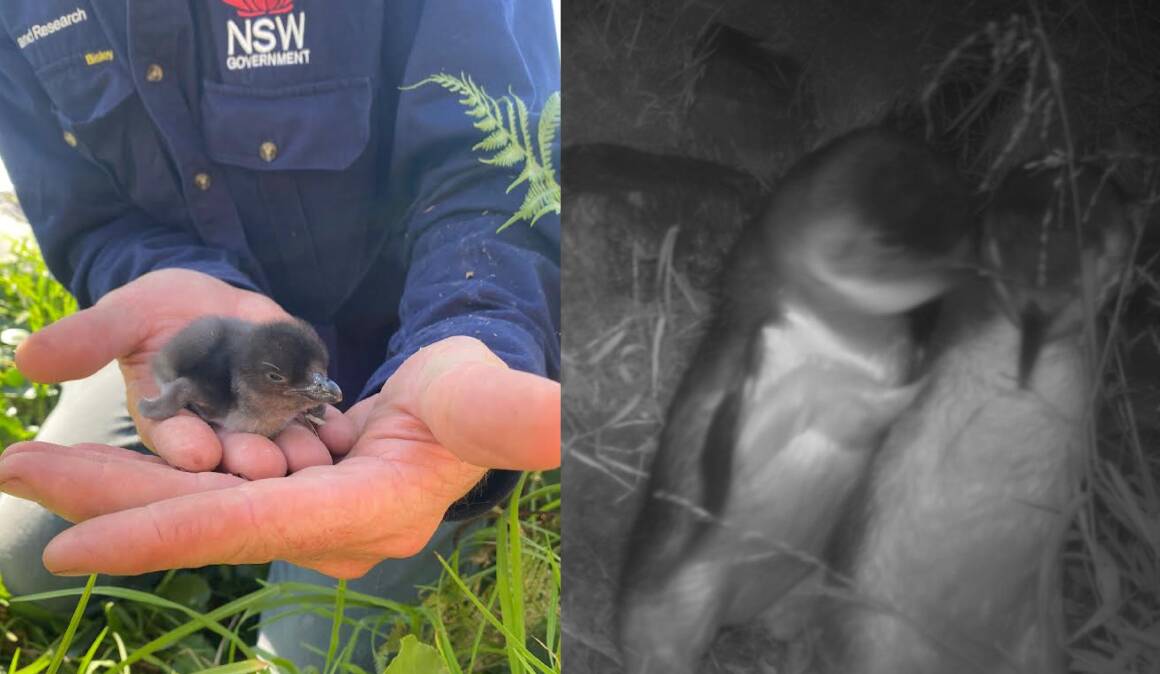
NSW Department of Planning and Environment's senior research scientist Nicholas Carlile said it was a huge win, and "to have birds come ashore and feel safe is really the hardest thing", let alone mate and produce offspring.
Mr Carlile became aware of the original colony in Eden after a presentation he conducted in 2015 for the Far South Coast Birdwatchers.
"The public raised some funds after they disappeared, and I discovered they were sitting in the National Parks and Wildlife bank account, and I knew exactly what to do with it," Mr Carlile said.
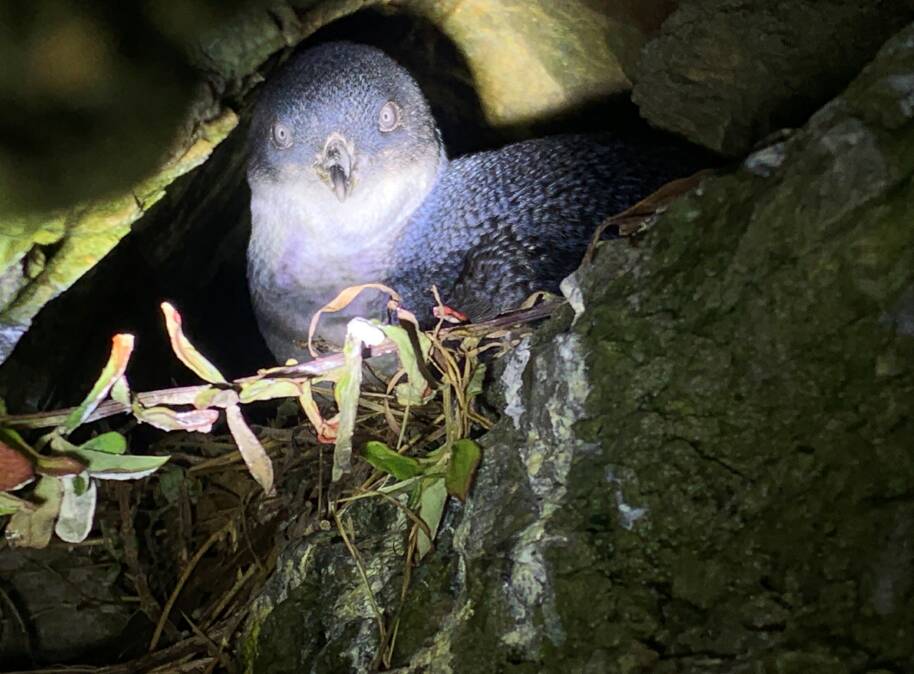
Citizen scientist Chris Lloyd, local ranger Wendy Noble and Mr Carlile surveyed a reserve in Eden and discovered a cove facing south, which they named "Wheel Cove" after the large rusted flywheel dumped at the base a century ago.
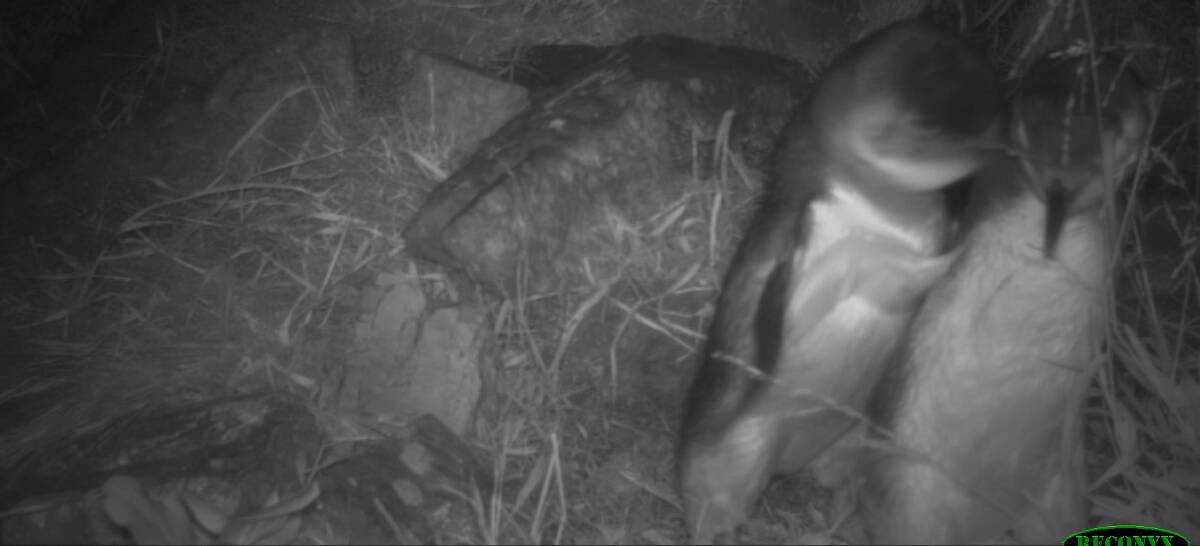
"We managed to work out [that] we could put in a 90 metre long fence that actually surrounded the cove and pitched straight into the sea rock cliffs, [so] we could keep foxes out," Mr Carlile said.
"We realised in Wheel Cove, unlike in Eagles Claw Nature Reserve, there weren't many sites where the penguins could breed.
"So we designed and developed a concrete and perlite penguin burrow, which we actually call the Eden burrow because it's specifically designed for little penguins to breed in, and the things like natural predators, goannas, can't get into.
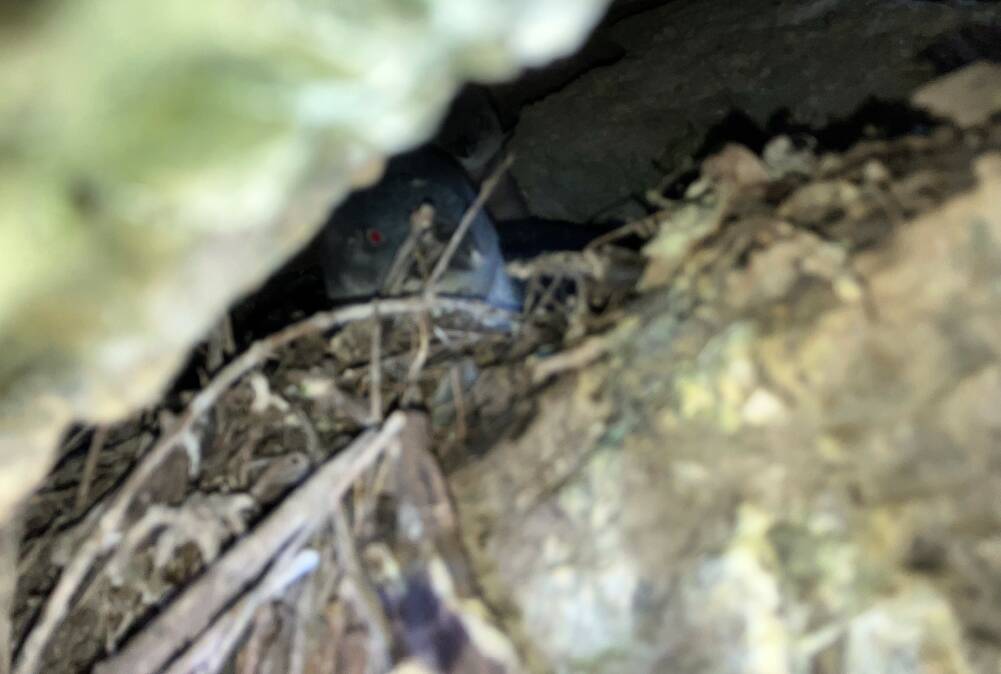
"It's a heavy burrow made of concrete, but it's got a curve in the entrance burrow where a goanna can't get it's neck around," Mr Carlile said, who worked with the Fix It Sisters in Sydney to build the burrows.
However, the penguins ended up using a natural rock cavity instead.
The first penguins came up to the site in December 2020, in July 2022 surveillance captured images of penguins carrying nesting materials, and in September 2023, using a burrowscope which is a portable camera and screen, Mr Carlile was able to witness two penguins on eggs.
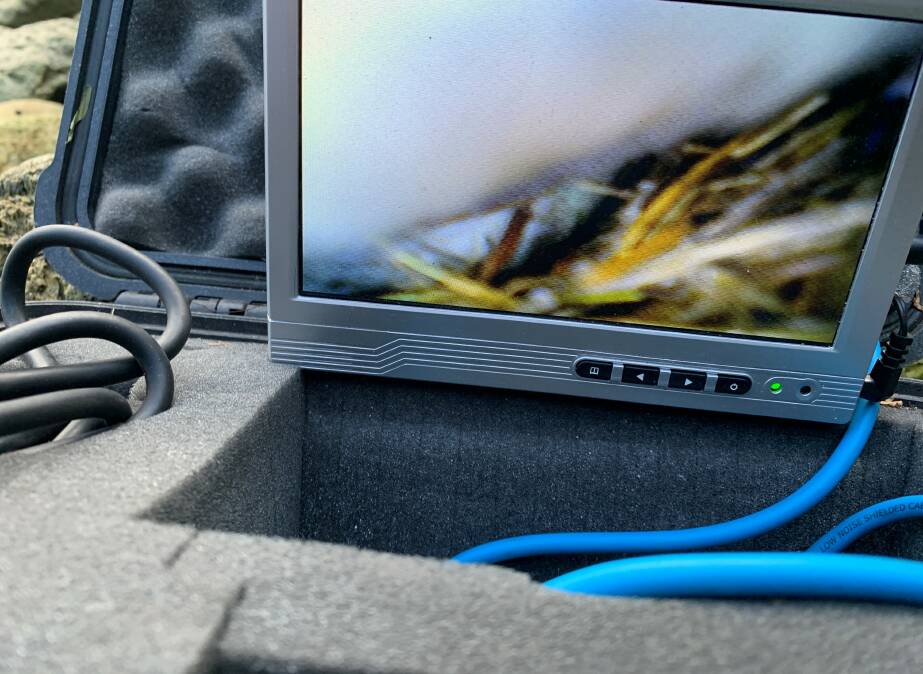
"When you've got birds that are establishing nests for the first time, they're often got to learn how to breed, and so just even getting there and getting eggs laid would've been a win this year," he said.
"They managed to knock one egg out, because they're a bit clumsy, [but] they don't have to get it right every time.
"One of those eggs, they've managed to carry it all the way through the incubation period which is about 30 odd days, and now the chick's hatched out," he said.
"To get them down at Eden is fantastic, particularly because it's re-establishing something the community had already [had] there, and if we can get this colony to grow, it can become a bit of an attraction.
"Penguins attract people, people love penguins for lots of reasons, it's not just Happy Feet, for me as a seabird ecologist, it's really great for people to even just be thinking about seabirds."
Through the efforts of The Department of Planning and Environment, local citizen scientists, NSW National Parks and Wildlife Service and Bega Valley Shire Council, hope for a new colony has increased.







